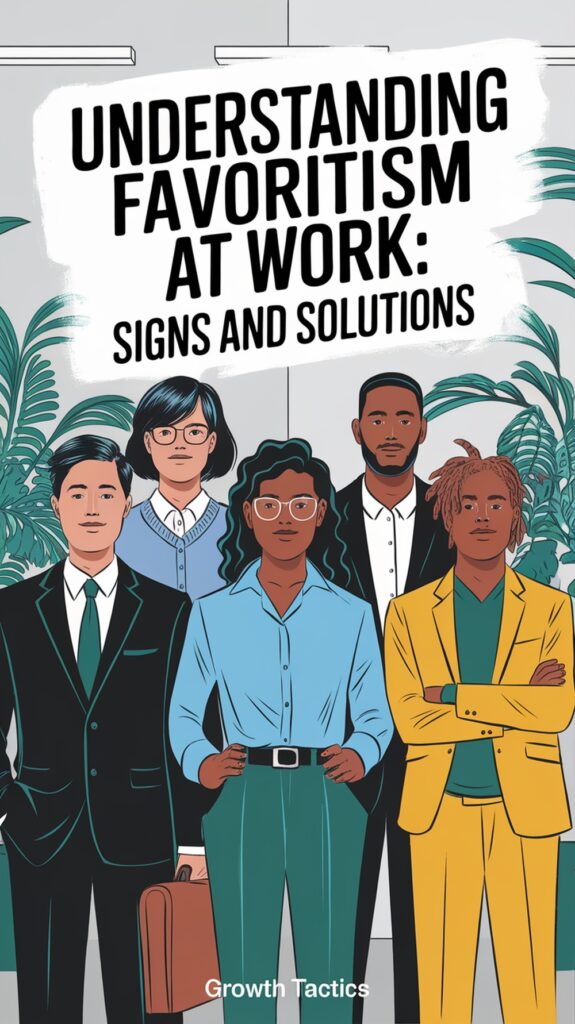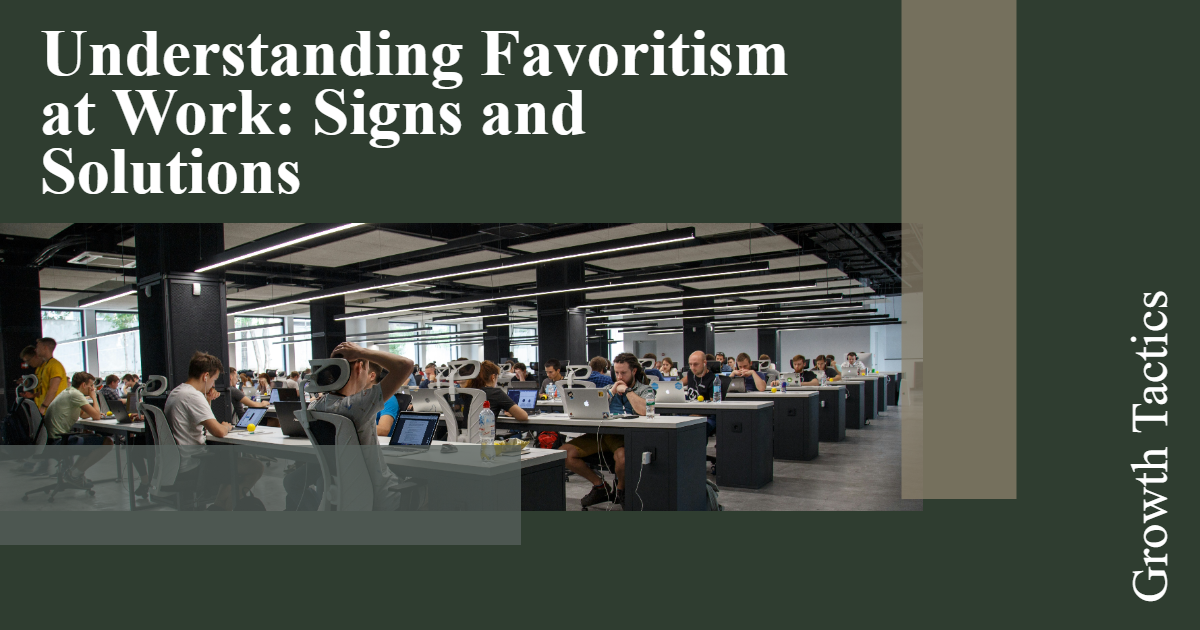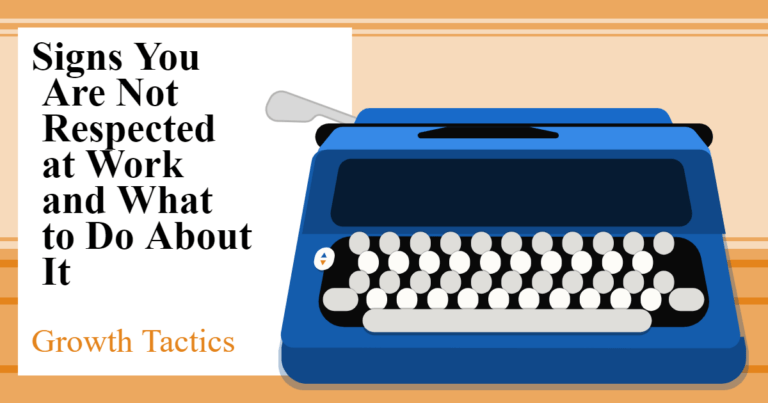It’s human nature to have favorites. Throughout my career, I’ve had employees that I connect with more than others but if you let it effect how employees are treated it will effect the work environment in a big way.
Workplace favoritism happens when some team members get unfair benefits. This is often due to personal relationships or other unmeasurable factors. It doesn’t relate to their qualifications or job performance. This situation can hurt a healthy work environment. It can also create feelings of resentment among colleagues.
In this article, we’ll discuss what favoritism looks like and how to avoid it in the workplace.
Jump To Section
What is Favoritism in the Workplace?

Playing favorites in the workplace means a person in power treating some employees better than others. This is often not based on how well they do their jobs or their skills. Instead, it usually comes from nepotism, office politics, or personal relationships. For instance, a hard-working employee might not get a promotion because a less qualified coworker has a close relationship with the hiring manager. These situations show how preferential treatment can hurt fairness and team spirit.
Favoritism can affect everyone by harming equal chances and lowering team morale. It can happen because of unconscious bias or intentional choices. In serious cases, this behavior can create a toxic work environment that slows down team growth and productivity.
Differentiating Favoritism from Professional Preferences
Favoritism happens when personal relationships, like friendships or family ties, influence choices. In contrast, professional preferences depend on clear and measurable facts, such as skills and performance reviews. For example, a strong, hard-working employee may not get in trouble for showing up late. Whereas a new person that doesn’t provide as much experience and productivity to the company may get fired for showing up late. Sometimes employees believe there is favoritism but it’s more professional preferences.
Performance reviews show clear data and specific KPIs (Key Performance Indicators) that help guide professional choices. Favoritism relies on personal biases. Using measurable evaluations and clear ways to share information can help distinguish real professional choices from signs of favoritism.
Examples of Favoritism in Everyday Work Scenarios
Favoritism at work can be seen in many areas.
Here are some clear examples of favoritism:
- Promotions and pay raises: A favored employee may receive promotions even if they are less qualified than others.
- Exclusive assignments: Special tasks often go to the same person without considering the rest of the team’s skills.
- Relaxed performance standards: A chosen employee gets fewer warnings for poor work compared to their coworkers.
- Access to mentoring: Some workers get more chances to join skill-building programs, showing bias.
These examples highlight how favoritism disrupts fairness and team spirit. Spotting these situations is the first step to stopping these behaviors at work.
Recognizing the Signs of Favoritism

Favoritism at work can be hard to see, but you can spot its signs if you pay attention. In this section, we’ll discuss some of the most common signs of favoritism.
Inconsistent Application of Rules
One clear sign of favoritism is when workplace rules are applied differently. For instance, if certain people can break attendance rules or miss project deadlines while others are punished more strictly, favoritism is easy to see. When a favored employee makes small mistakes, managers might ignore them. This creates unfair double standards.
By ensuring the rules are the same for everyone, companies can stay true to their values and build trust among team members.
When rules aren’t applied equally, it causes resentment. This leads to disengagement from team members who feel overlooked. Without a clear approach, favoritism can hurt company culture and productivity. Managers should check if their decisions match performance reviews and qualifications, not personal bias or friendships.
Disproportionate Opportunities for Certain Employees
Career development opportunities can sometimes show favoritism. This happens when some employees get more benefits than others, like special mentorship or ongoing access to important projects. This kind of behavior limits talented employees from showing what they can do. It also divides the team and creates unhealthy competition.
To change this, managers need to make sure professional growth opportunities are given fairly. A good work environment should help every team member succeed based on their skills, not favoritism. Having clear rules for project assignments and promotions can help stop unequal treatment and keep the team working well together.
Exclusive Interactions and Communications
Favoritism often shows up through private talks and special interactions. For instance, when a manager talks about important decisions with one particular employee and doesn’t consider the team’s input, it clearly points to favoritism.
These personal relationships can lead to office gossip and mixed priorities. This is especially true if special assignments are not shared with everyone on the team. When some people have exclusive interactions, it can cause resentment and a lack of trust among colleagues, which can hurt teamwork.
Promoting open communication in meetings can help reduce selective discussions. Using clear channels like shared workspaces and team tools can stop unfair interactions from upsetting the balance in the organization.
The Impact of Favoritism on Team Morale and Productivity

Favoritism can have some devastating effects on the workplace. In this section we’ll go over just some of the effects it can have.
Effects on Employee Motivation and Engagement
Favoritism has a direct effect on how motivated workers feel. When some employees feel less valued, it can lead to resentment. Team members who see that one person gets special treatment may lose hope in getting fair rewards for their hard work. This can make them disengage from the team.
For instance, if one favored employee always gets recognition, others start questioning their chances for promotions based on merit. This can create a lack of trust within the group. As resentment grows, it can harm teamwork and engagement.
To prevent these issues, managers should aim for inclusivity. They should recognize the achievements of all team members fairly. Having clear feedback processes helps encourage active participation and ensures that everyone’s hard work is valued.
Consequences for Workplace Harmony and Cooperation
Favoritism hurts workplace harmony. It creates problems with teamwork among employees. When workers feel ignored, they are less likely to work well together. This can lead to divisions in teams. Over time, it can cause ongoing conflicts, lower productivity, and increased employee burnout.
For example, when promotions are based more on nepotism than on qualifications, it destroys trust and teamwork. The consequences of favoritism hurt morale and can lead to higher turnover rates in organizations.
To keep harmony in the workplace, managers need to make sure their decisions are based on skills and hard work. Having clear rules can help make things fair. This will encourage better cooperation among all employees.
Legal Implications and Ethical Considerations of Favoritism

Favoritism can lead to various legal issues, particularly if it results in discrimination complaints or violations of labor laws. For example, if a manager consistently promotes employees based on personal connections rather than merit, it may expose the organization to claims of unequal treatment based on race, gender, or other protected characteristics.
Ethically, favoritism undermines the principles of equity and fairness that are crucial in any professional setting. It can create a culture of distrust, where employees feel undervalued and may engage in detrimental behavior or even sabotage.
Organizations must establish clear policies against favoritism and ensure leaders are trained to recognize and avoid it. Fostering an environment where ethical standards are upheld, and all employees are treated with respect and fairness. Additionally, transparent recruitment, hiring, and promotion practices can help mitigate the risks associated with favoritism and reinforce a commitment to ethical leadership.
Strategies to Address and Mitigate Favoritism
We’ve discussed how favoritism can hurt trust, productivity, and team spirit, but there are ways to get rid of or at least minimize its effects.
Implementing Transparent Policies and Procedures
Clear policies are very important for a fair and equal workplace. When favoritism happens, employees may feel excluded and question their value. Strong evaluation systems, like structured performance reviews, help reduce signs of favoritism.
HR departments and managers need to explain the rules for raises, promotions, and recognition clearly. This helps keep decision-making fair. Encouraging feedback brings in everyone and shows where improvements are needed. Good constructive feedback builds trust among team members.
Creating ways for team members to talk about their concerns helps hold everyone accountable. This stops favoritism from growing in work relationships.
Promoting an Inclusive and Fair Work Environment
Creating an inclusive workplace starts with managers promoting fair treatment. An inclusive environment values the contributions of every employee. It makes sure that favoritism does not get in the way of career growth.
Talented employees need the same chances for promotions, training, and mentorship. Encouraging open conversations helps promote fairness and cuts down on exclusion from preferential treatment. For example, rotating key roles among team members can help spread responsibilities and create variety.
A leader who focuses on inclusivity will see improved teamwork and less office gossip or resentment. Fair systems help teams build trust.
How do you handle favoritism at work?
How do you handle favoritism at work?
Handling favoritism at work can be tricky, but here are some strategies to consider:
- Stay Professional: Maintain a professional demeanor regardless of the situation. Focus on your work and strive for excellence.
- Communicate Openly: If you feel comfortable, address your concerns with your supervisor or HR in a constructive manner. Share specific examples without sounding accusatory.
- Document Instances: Keep a record of any instances of favoritism that you observe, detailing dates, actions, and impacts on the team or projects.
- Build Relationships: Foster good relationships with all colleagues and management. Networking can help mitigate feelings of isolation and provide support.
- Focus on Your Growth: Concentrate on your own development and accomplishments rather than getting caught up in others’ dynamics.
- Seek Support: If favoritism is impacting your work environment significantly, seek advice from trusted coworkers or mentors who might have dealt with similar situations.
Remember, it’s important to handle the situation with tact and professionalism to maintain a positive work environment!
Conclusion
In conclusion, favoritism at work can lower team spirit and reduce productivity. The first step is to spot the signs of favoritism. These can include unfair rule enforcement and selective interaction between team members. To lessen its effects, it is important to use clear policies and create an inclusive work environment. By doing this, both employees and managers can help build a fair workplace where everyone feels appreciated and driven.








